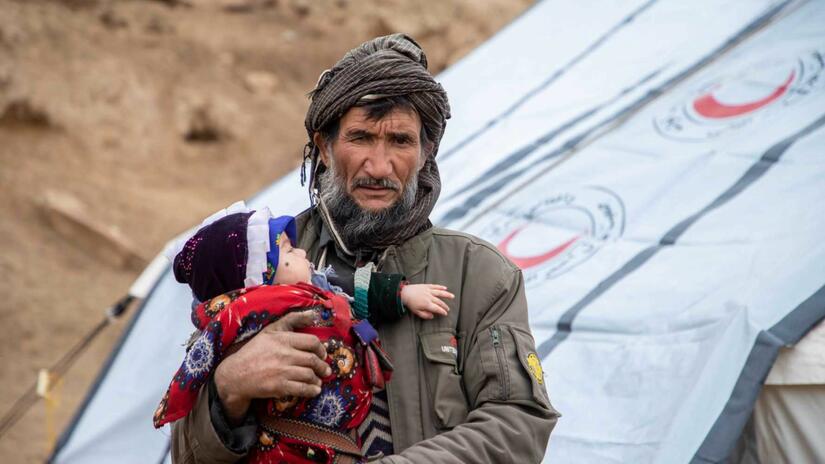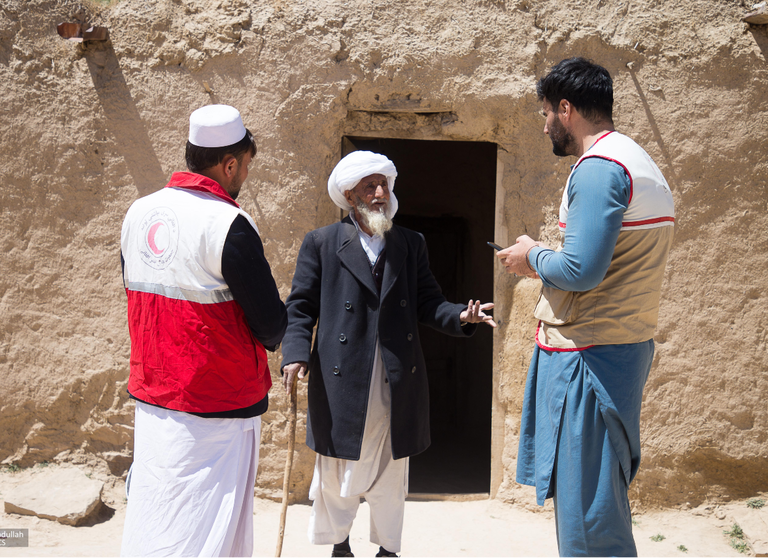Kuala Lumpur/Kabul/Geneva, 22 March –The International Federation of Red Cross and Red Crescent Societies (IFRC) is raising grave fears for millions of Afghans and farming communities as fields remain bare of the annual spring crops.
The ongoing drought means that the area planted with winter wheat is well below average. Field reports indicate that half the ground normally sown with wheat was fallow at the end of the planting window in December. Hunger is worsening in Afghanistan, with 95 per cent of the population going without enough food to eat every day, according to the United Nations.
The few crops which were planted are likely to face harsh conditions, with La Nina expected to bring drier than normal conditions in the coming months, extending the severe drought into a second year.
Mawlawi Mutiul Haq Khales, Afghan Red Crescent Acting President, said:
“Millions of families rely on farming, but they already lost last year’s crops to the severe drought, leaving them without grain to get through the harsh winter or seeds to sow in the fields.
“Without seeds in the ground, there will be no harvest in spring and summer, creating a real risk of famine across Afghanistan, where nearly 23 million people are already unable to feed themselves every day.
“We need to ramp up our efforts to support these communities with relief as they brace for a second year of drought and food shortages, while working to sustain livelihoods that are so important for families and entire communities.”
The drought crisis has fuelled an economic crisis in a country where agriculture is critical for people’s livelihoods and the mainstay of the economy. More than 70 percent of Afghanistan’s population live in rural areas and around 80 percent of livelihoods depend on agriculture, according to the latest IPC Afghanistan food security data.
Afghan Red Crescent, supported by the IFRC, is working with farming communities to have more sustainable water sources, drought resistant crops and other income generation opportunities for women in regional parts of the country.
Johanna Arvo, IFRC’s Acting Head of Delegation for Afghanistan, said:
“The ravages of climate change mean risks and hardship are skyrocketing for people in Afghanistan. Millions of people have faced two severe droughts in four years, causing catastrophic crop failures and devastating food shortages.
“Temperatures are rising, leading to reduced snowfall cover, snowmelt and water supplies. Rainfall is becoming more erratic, decimating agriculture in Afghanistan.
“As well as providing immediate relief, we must invest much more in the future by helping Afghans to establish more sustainable water supplies and drought resistant crops, while supporting income generation for the most at risk, including women and the elderly.”
As part of this ongoing support, the IFRC is urgently appealing to the international community for more than 65 million Swiss francs to support the Afghan Red Crescent to deliver health services, emergency relief and recovery assistance to more than 1 million people in the provinces hit by multiple crises.
For more information or to arrange an interview, contact:
Asia Pacific Office:
Antony Balmain, +60 12 230 8451,
[email protected]
Asia Pacific Office:
Joe Cropp, +61 491 743 089,
[email protected]





